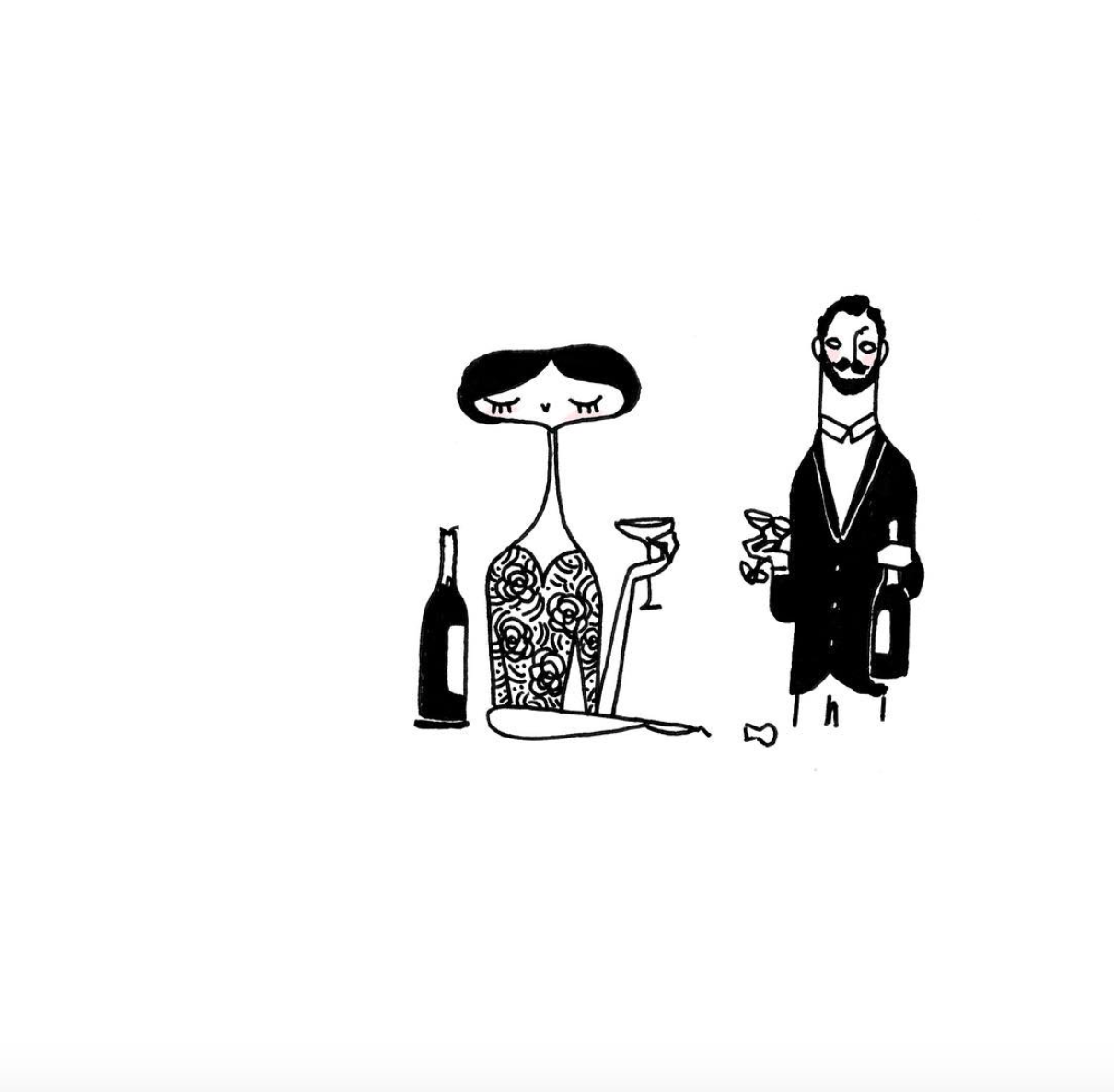Ever since she was twelve, Yumi dreamed of owning a restaurant. Not a very large one but also not one that was too small. In Yumi’s twelve-year-grown mind, her restaurant had but four tables – a table for each season – and the menu would change depending on where you sat. Spring blossoms for one table; cold, cucumber summer soup at another; roasted Kabocha squash with caramelized onions at the winter table; pumpkin bread served with baked brie on top for fall. At this autumnal dining stand the brie could even be drizzled with honey, but only if she could find a New Zealand importer willing to provide her with the real Manuka kind, raw (naturally) and for relatively cheap. She didn’t want prices at her restaurant to be so exorbitant that diners would need to pay for their meals with nuggets of gold but not so discounted they’d think less of her food. Yumi would charge the plates with $0.99 endings – $19.99, $45.99 and on and on – so that a certain level of psychological coercion roasted in the minds of her restaurant goers throughout their entire culinary ordeal. (“Yes, of course I’ll take the seared chicken breast with rosemary crust and cranberry jam,” one might order but only because such a course was $34.99 instead of the full $35.00.)
This was the very specific, very strong kind of dream Yumi experienced at twelve years old that caused her parents to laugh at her and say, “Oh, Yumi, wait until you grow older to figure out what you really want. You’re only still a child. You can’t possibly know.”
But at twelve, she did. And now at thirty four, she still does.
There were plenty of things that stuck themselves between young Yumi and a Yumi fully grown (not to mention a quite elegant and beautiful Yumi) like love lost and found then lost again, or a college degree in social work (“pick something sensible,” her parents reminded) or a pixie haircut that only just settled into a fashionably short bob or three failed jobs as a hostess in three restaurants without a clue. She could even place one year of food critiquing inside the in-between period, although Yumi was still surprised she lasted that long at such an agonizing job. Her patience (or whatever she had of it) wore thin as a vegan from Brooklyn every time the meal, or the drink she ordered didn’t arrive at a prompt four minutes after her choice was made. Once, in a fit of frustration, she got up and left a restaurant meant to endure her critique, bought a bottle of her favorite wine at the liquor store across the street, and drank half of that buttery Sonoma Chardonnary before the server arrived, glass and vino in hand. (“There’s a small difference between waiting and acting, my good sir,” she told the confused waiter then took a sip of her own white wine.)
Twenty-minutes-late drinks aside, Yumi could argue that it was the complete lack of restaurant goodness – from poor customer service to low quality of meal – that drove deeper and deeper her motivation to open a four-table restaurant of her own. Then, weeks ago, this motivation was driven so deep it had no choice but to hit the center of her Earth, somewhere just left of her soul, and there cracked into a real, live thing with four tables and a menu inked by a professional calligrapher from Japan.
“Those dangling partin-ciples will get you every time,” said a man called Mr. Vagranto, her first investor at her new restaurant, Seasonal, as he scanned the contract set out on the table with a lukewarm, wistful eye. “This looks good enough though, even if I never warn-tin’ to get into the rez-toe-rant biz-niz,” he said. “I juz can’t cook to save the azz-hole of a wild boar and I inherin-ted a chunk o’ much money from a dead uncle who told me if a plan seems poo-poo enough to work, then it prol-ably will.”
He laughed roughly and she smiled quick in response. “I think you mean foo foo.”
“Huh?”
“Nevermind,” she sighed.
“Also,” he said, biting at the tip of the pen that loitered close to the blank line at the bottom of the contract. “You gonna have a table waitin’ for me zince I’m invezz-in’ here?”
“Of course I’ll keep a seat empty at the bar for whenever you decide to visit,” she replied. With only four tables, Yumi couldn’t afford to promise one away, even if it was to her first and only investor.
“Whaz that? Put me where?” Mr. Vagranto’s voice trailed off into the hush of the room, empty except for a thin glass bar that wrapped around one edge and four tables covered in white linen with four white chairs set at each. His pen had descended moments before and he had signed the last paper in the stack. Now, his copy of the contract under one arm, he hopped toward the bay-windowed front of the restaurant on his “bad son of my grandma’s gun” leg. He’d apparently broken this limb in childhood and never bothered to fix it since.
Watching him walk-hop, Yumi couldn’ t help but think that Mr. Vagranto’s crooked shape made quite the discordant picture against the clean, sophisticated lines of her little restaurant. In fact, Mr. Vagranto himself made quite the discordant picture, restaurant backdrop or not. He was nothing like you’d imagine anyone to look who was an established investor with deep pockets. He came together from all the wrong angles, a tall, awkward figure dressed in a denim button-down shirt with half the buttons undone to expose a blotch of dark chest hair speckled by large chunks of dandruff. His most distinguishing feature, besides the poor leg, was a thick silver scar that ran zigzag from the base of his chin to the right side of his throat. Unlike his bad leg, he never explained the scar but Yumi, who gulped even at this moment as she thought about it, could only guess.
“I’ll save you a seat at the bar,” she repeated, wondering when Mr. Vagranto might leave for good.
“Oh the bar,” he echoed distractedly. He blinked and seemed to regain his attention. “My life zayin is that you gotta stick to vodka if you wan’ a life worth livin’.”
“I couldn’t agree more,” Yumi purred in her most convincing version of a coo. The amateur sommelier couldn’t openly argue against her solitary investor, though she did with every pear note and oak-barrel aged fiber of her being. She was also reluctant to give Mr. Vagranto anything more to respond to or else he might never leave.
With no more words to exchange, Mr. Vagranto turned again toward the front door. As he passed her by on his way out, something cooled. Not a breeze exactly but a feeling that traveled through the air and chilled it just a touch. Make no mistake, she had just signed a deal with a bad, bad man.
“Hey Yumi,” he said with a final look her way, “Juz wond’rin’, what iz your life zaying?”
“Oh, well I like to say, ‘there’s a small difference between waiting and acting,'” she responded with all the child-like enthusiasm of a Yumi twelve years old because her dream of owning a restaurant had finally been fulfilled and that made her the greatest actress of all.
[This tiny tale was inspired by a drawing from Vincent Moustache, a Paris-based illustrator whose work has been featured in the pages of Vogue and by the CDFA.]



The difference between waiting and acting, is the similarity between portrait and story. Bravo! Nice to read your imaginative, artful musings again. Jet lagged and sleepless in Abu Dhabi!, I Thank you!